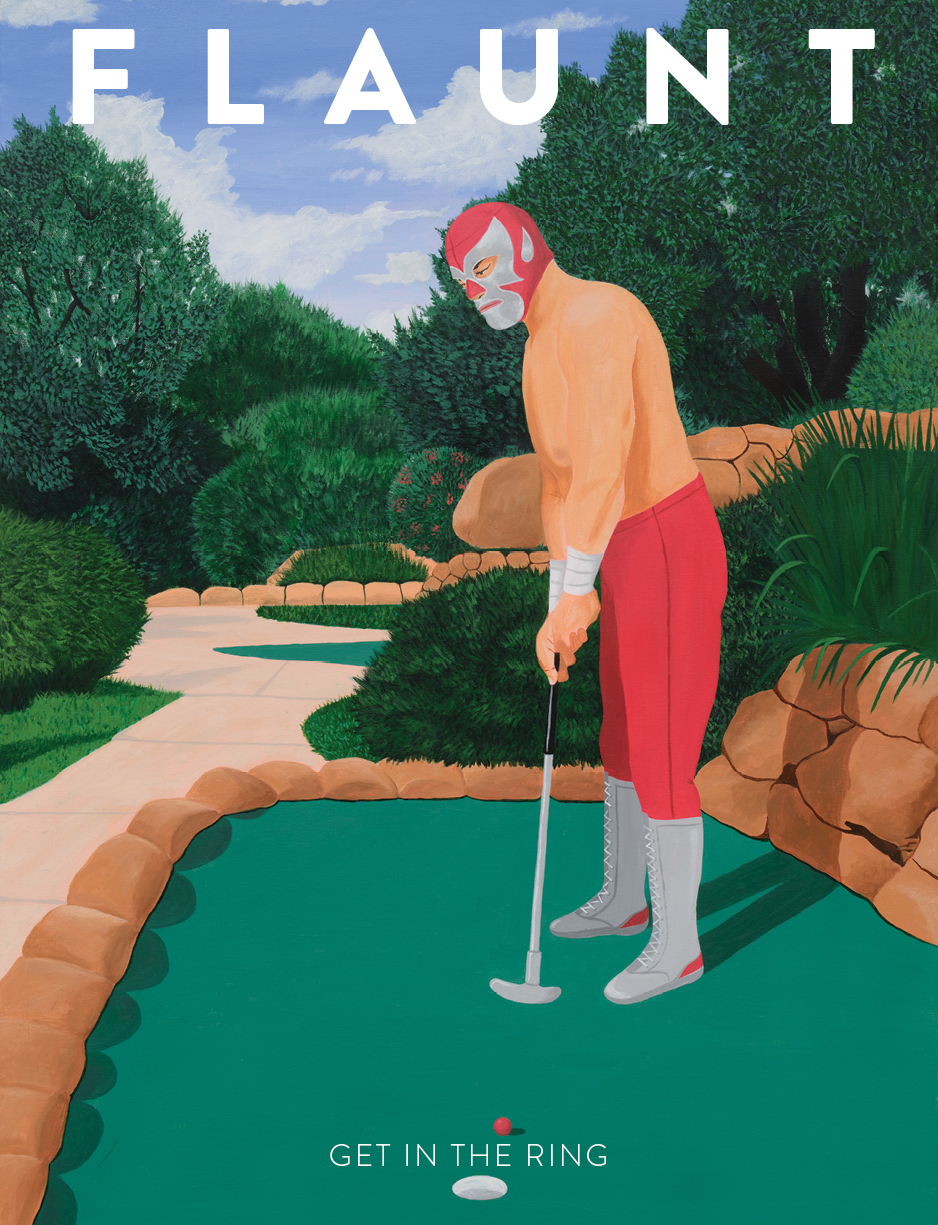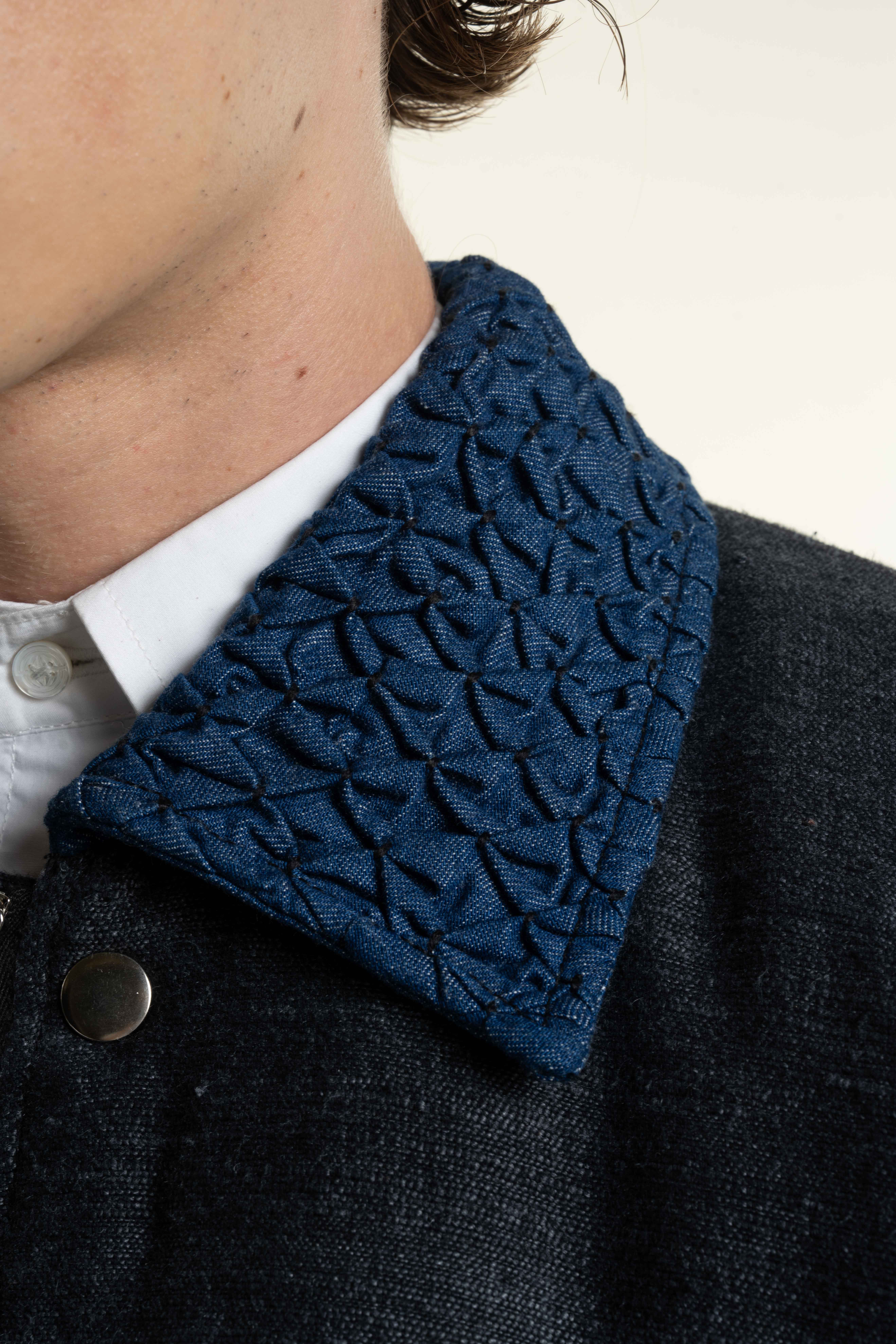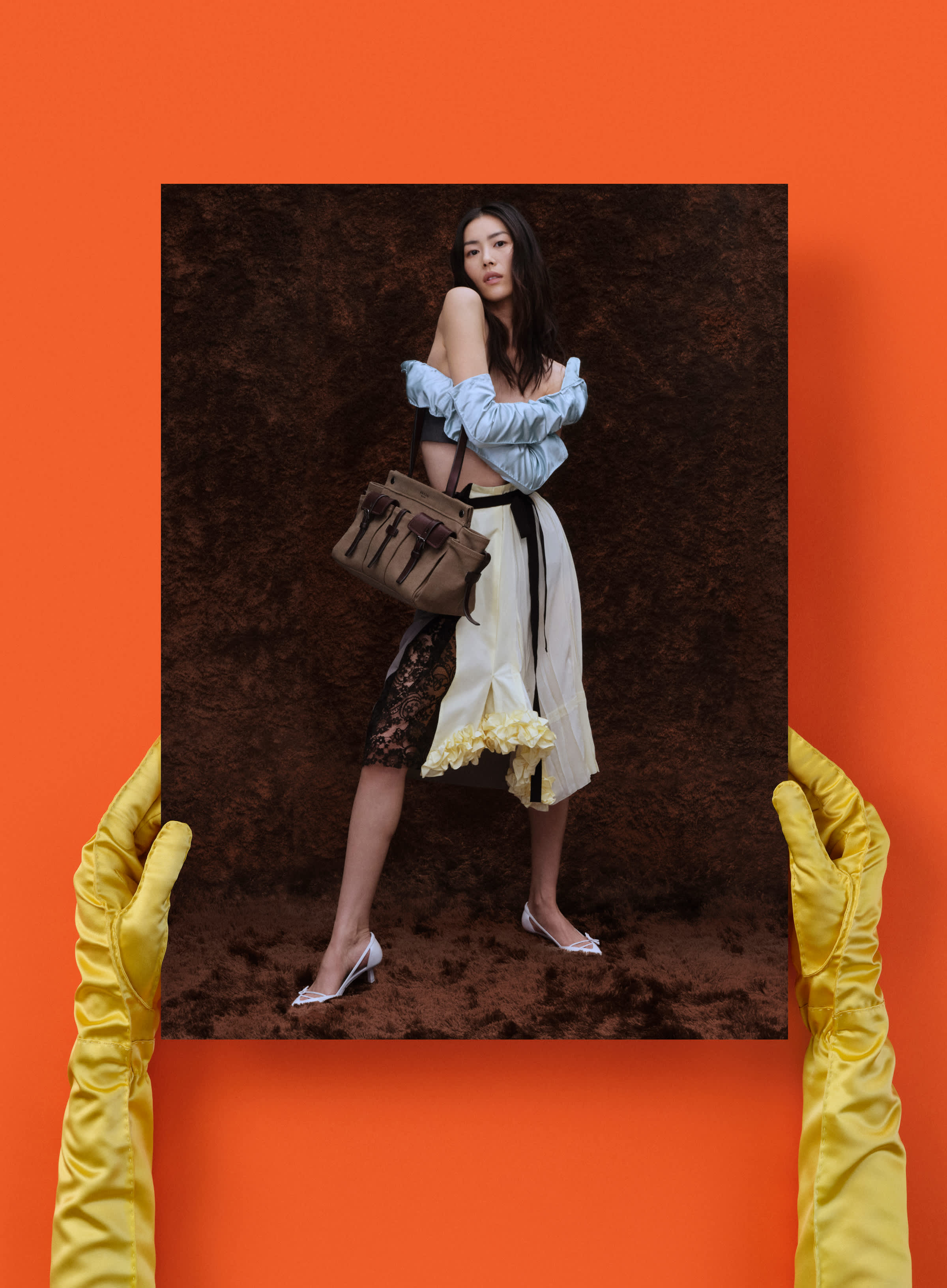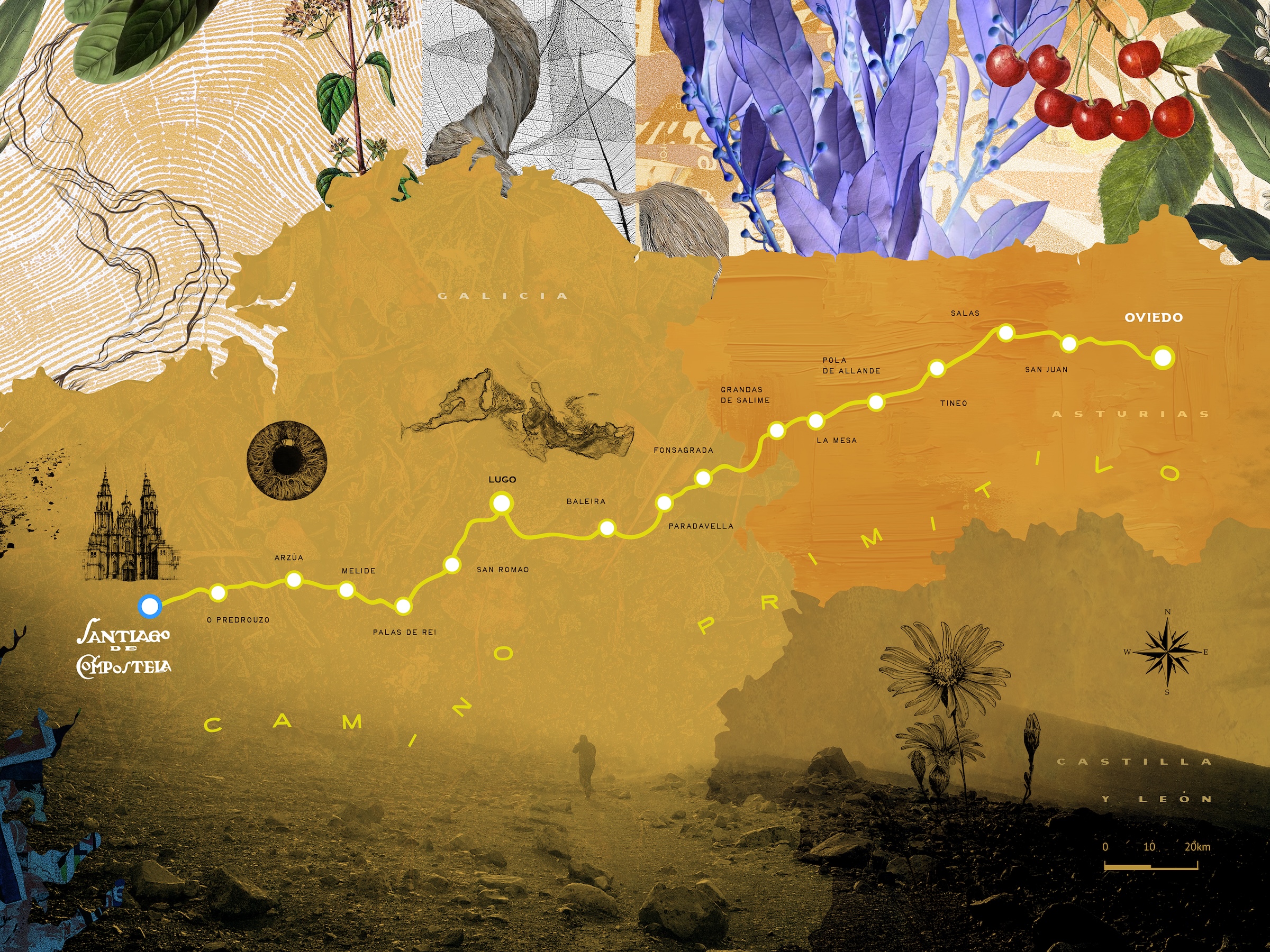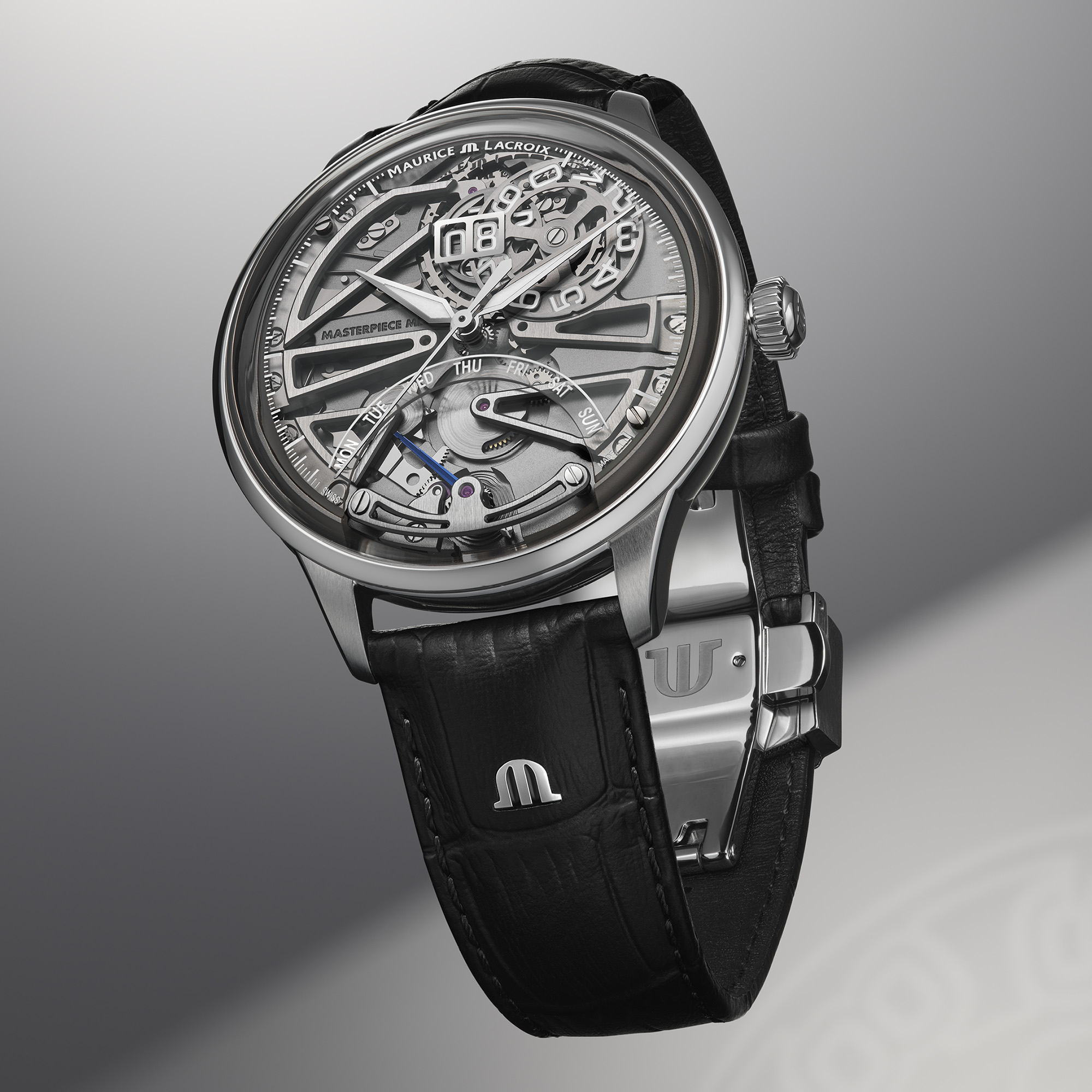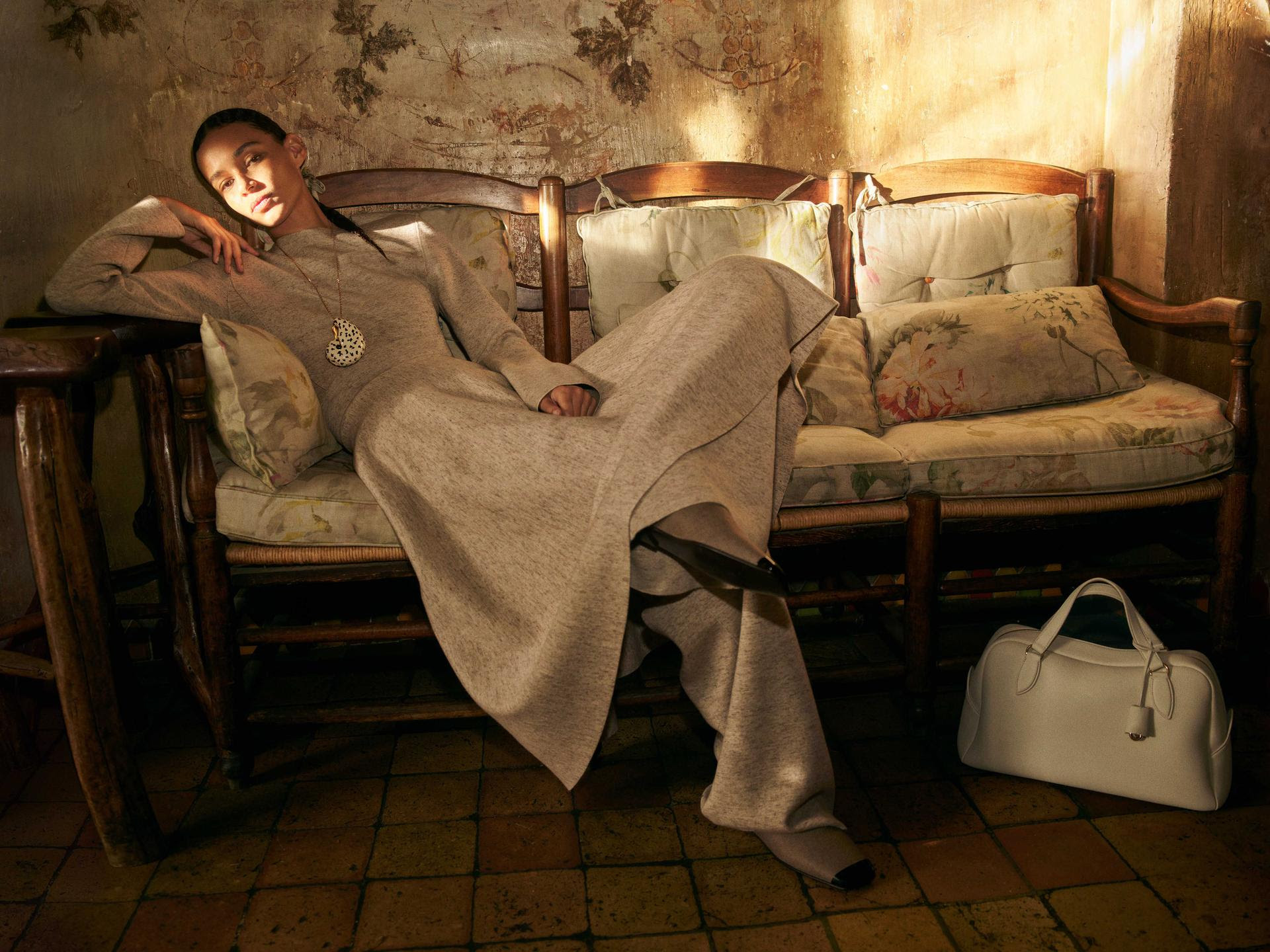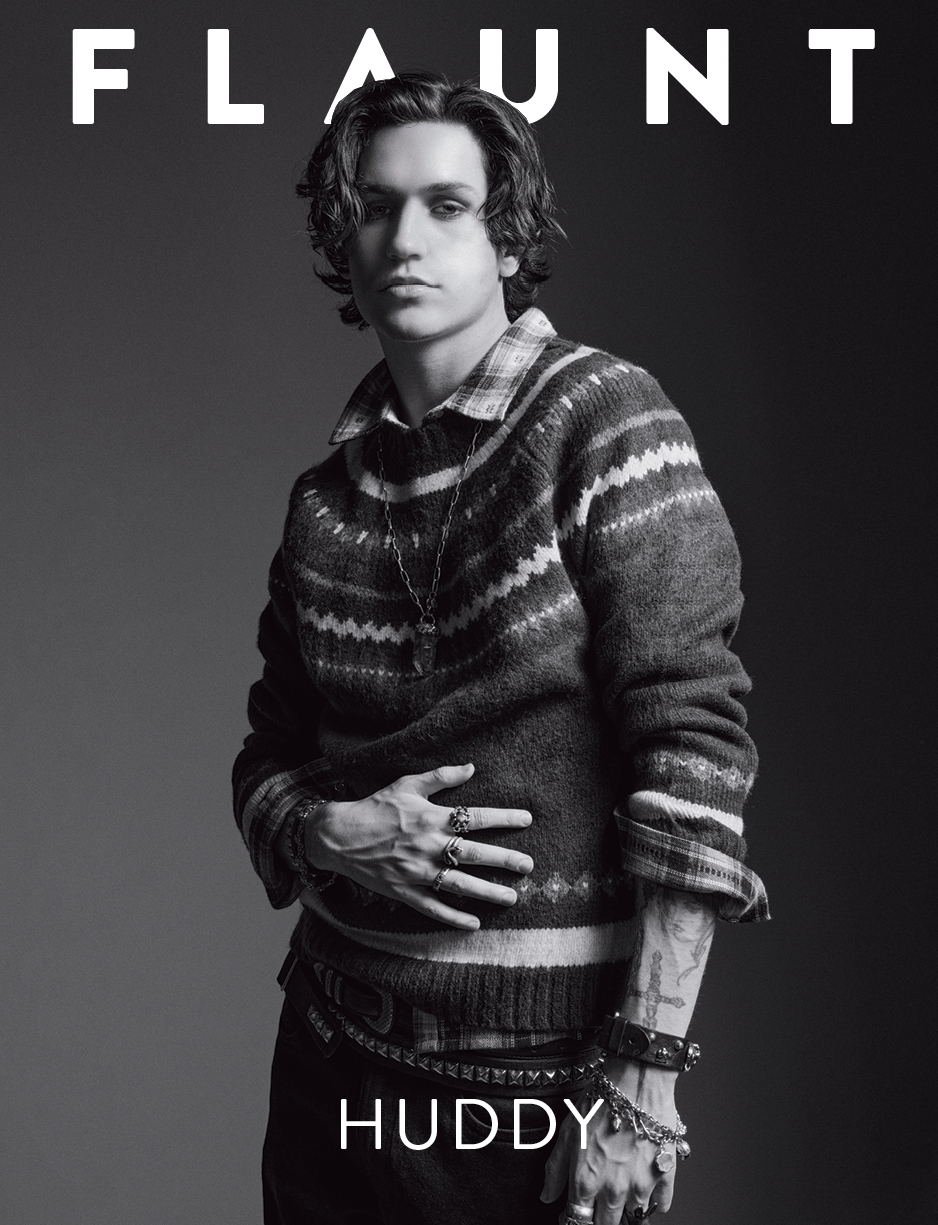

After the success of _MAARA_ and _MAARA2_ released on Mother Russia Industries, UN/TUCK resident Mazzy Mann, with moniker: MAARA, is exploring new capacities in _MAARA 2.5 X MIXES & REMIXES_, out now. With tracks ranging from jungle to techno, ambient to trip hop, and from pop to industrial, MAARA takes a dip in (or at) the internet, loneliness, pandemic burnout, and perceived identity.
Featuring Bored Lord, Octo Octa, Gag Reflex, Him Hun, Dan Miles, and UN/TUCK producers Sister Zo, Floraviolet, CLOSE QRTRS, and Stem Cell Uterus, MAARA 2.5 takes a deeper look at social media and its queerness. Read below for MAARA’s take on the internet, the pandemic, and identity.
**Your recent release touches base on so many different sounds and seems to mix different genres. Which track did you personally have the most fun creating? Why?**
The track “WWW'' was special to me, because it was a collaborative effort between me and producer Floraviolet. We put together a bunch of samples we liked and composed over it in a really symbiotic way. It was a lot of fun to make, but it was also an important song to me as well, using haunting dream pop to address the loss of living online in lieu of interpersonal connection.
It was important to me, overall, to feature a lot of interdisciplinary mediums to the album to further platform multiple producers of many different genres to illustrate the lived experiences of queerness and identity through their own voices as artists.
**How did social media and the internet inspire _MAARA 2.5_?**
I felt like social media, in spite of its overall connection, inspired the tropes of loneliness and isolation in the MAARA project in 2020 leading into _MAARA 2.5_. I had released two EPs on Mother Russia Industries in 2020 detailing the loss of self in social media, named _MAARA_ and _MAARA2_ respectively, and diving into _MAARA 2.5_ felt like a pinocchio effect, wondering if myself as a photo in an algorithm was really real at all. The concept of MAARA on the internet comes from a place of existentially questioning self and identity in a time where community seemed distant but online. In a format of obsessing over likes and follows, and hoping to be perceived once again by a familiar face who felt far away, I had lost a sense of self. I felt it important to illustrate that in my music through the lens of MAARA. Afterall, MAARA is just an allegory for the mirror, whether it be the proverbial mirror of social media or the physical mirror looking back.
**What do you hope to accomplish with these mixes? What message do you want to be clear?**
What I wish to accomplish with these mixes is to bring together voices of queer and trans experience to illustrate their respective visions with the music through their various remixes and collaborations, and as a result reach young trans listeners who may feel under-represented in music media. The themes of the MAARA project as a whole draws parallels of a pandemic time period and the trans experience of isolation through the feelings of inadequacy. In a country that passes draconian state laws targeting trans people, I felt it important to make music a message that represents those feelings through solidarity, in a way that challenges the norms of genre based music and the status-quo of cishetero-normativity.
**During the pandemic, did you find it hard to write music? What was that process like for you/How did you get through it?**
During the pandemic there were many times where I found it difficult to write music. At a time where I felt I was at a height of music making pre-pandemic with my band HANNAH, my solo work, and curatorial work with UN/TUCK, I felt a major loss with a litany of cancellations and the unsuredness of when events would return. MAARA was a life raft for me, because in my artistic universe I had always created characters, or performance monikers, to detail the struggles of identity in my life. MAARA was no different.
With my confidence faltering and my relationship to social media becoming more toxic, I knew I had to dissect these feelings in a way that felt fluid, honest and real. MAARA was initially born in April of last year to do something more concise than my ambient or ensemble work and turn to pop music as a challenge and a poetic understanding of my place in the world. I bought a 20 inch blonde crimped wig online, a red beret, put together an outfit, and became the ironic and detached social media influencer MAARA as a point of post- modern iconography.
At first it was almost a gag, releasing tracks like “M Mario” about the pitfalls of Grindr, or “An0n” about looking done up and hot but having nowhere to go. The darker, more evolutionary turn came in August when I had a falling out with close friends and the weight of the world began to shift with widening police brutality in the streets and the 2020 election. Social media became an existential cage. I made _MAARA2_ in what felt like the middle of the night, churning out several tracks in a panic-induced fever dream. The tone of the project became evermore existential, asking myself, “one day will I be a real girl?”, “if this post gets so many likes, will I be able to sleep at night?”, “Is this DM consequential to face-to-face love and intimacy?”
When it came to _MAARA 2.5_, I felt it was a closing chapter to a time period, and the two sides of self, the tragic and the comic, became evident in the resonance of the many talented producers who partook in _MAARA 2.5_, rechanneling a voice in isolation into a voice of many artists.


**Your music aims to address perceived identity and queerness. How do you weave that into your work?**
Starting with my transition back in 2016, I had begun to realize how my background in theater and music production became an interplay into perceived identity, whether it be the stage or my day-to-day life. From the Weimar period of cabaret in the 30s to the Stonewall period in the 70s, from the upcoming of Ballroom culture to Frankie Knuckles defining House in the 80s, performance and production through gender variance took public hold, and seemed to speak to identity beyond just the lens of queerness. To define that in my own craft came from a place of marrying queer performance history in which allowed me to be, to the existential philosophies of Nietzche, the weight of the unidentifiable self of Kafka, and the spy thriller Noir of Hitchcock.
My work has always been driven by understanding a fuller ideology of self and being able to project that through voice, narrative, and music. I illustrate that through textured sound art to express what emotion can’t, and use pop and electronic music elements to weave together a disposition that flows like an opera.
**What was the main goal with having so many collaborators on this project?**
The reason it was important to release _MAARA 2.5_ on UN/TUCK and to include many queer and trans producers to remix and to re-imagine tracks was to allow a broader range of expression from what MAARA as the “I” means and what MAARA as the “we” means. Through multiple genre remixes and different dissections of MAARA songs, the narrative of perceived identity became a universal take on the mirror of social identity. From the range of Bored Lord’s DnB mix to Him Hun’s album homage sound collage, the many different expressions create an interface for an emotional journey.
**Everyone has experienced loneliness and burnout to at least some degree. Why did you want to touch on these themes in your tracks?**
I wanted to touch on the tropes of loneliness and burnout in this release through pandemic isolation, capitalism further failing disenfranchised people, feelings of not belonging and how that runs parallel to the existential trans experience. It is not lost on me that my ongoing struggle in society with feeling like I couldn’t belong as a trans woman in the Midwest is actually a universal concept. These ideas of feeling inadequate are through a system of hyper-individualism based in a competitive capitalistic state, cisheteronormativitive patriarchy, the neoliberal co-opting of self as a broader community, and a widening polarization of truth. MAARA seeks to unravel those systems and to question a need for them in their exploitation of self.
 
After the success of _MAARA_ and _MAARA2_ released on Mother Russia Industries, UN/TUCK resident Mazzy Mann, with moniker: MAARA, is exploring new capacities in _MAARA 2.5 X MIXES & REMIXES_, out now. With tracks ranging from jungle to techno, ambient to trip hop, and from pop to industrial, MAARA takes a dip in (or at) the internet, loneliness, pandemic burnout, and perceived identity.
Featuring Bored Lord, Octo Octa, Gag Reflex, Him Hun, Dan Miles, and UN/TUCK producers Sister Zo, Floraviolet, CLOSE QRTRS, and Stem Cell Uterus, MAARA 2.5 takes a deeper look at social media and its queerness. Read below for MAARA’s take on the internet, the pandemic, and identity.
**Your recent release touches base on so many different sounds and seems to mix different genres. Which track did you personally have the most fun creating? Why?**
The track “WWW'' was special to me, because it was a collaborative effort between me and producer Floraviolet. We put together a bunch of samples we liked and composed over it in a really symbiotic way. It was a lot of fun to make, but it was also an important song to me as well, using haunting dream pop to address the loss of living online in lieu of interpersonal connection.
It was important to me, overall, to feature a lot of interdisciplinary mediums to the album to further platform multiple producers of many different genres to illustrate the lived experiences of queerness and identity through their own voices as artists.
**How did social media and the internet inspire _MAARA 2.5_?**
I felt like social media, in spite of its overall connection, inspired the tropes of loneliness and isolation in the MAARA project in 2020 leading into _MAARA 2.5_. I had released two EPs on Mother Russia Industries in 2020 detailing the loss of self in social media, named _MAARA_ and _MAARA2_ respectively, and diving into _MAARA 2.5_ felt like a pinocchio effect, wondering if myself as a photo in an algorithm was really real at all. The concept of MAARA on the internet comes from a place of existentially questioning self and identity in a time where community seemed distant but online. In a format of obsessing over likes and follows, and hoping to be perceived once again by a familiar face who felt far away, I had lost a sense of self. I felt it important to illustrate that in my music through the lens of MAARA. Afterall, MAARA is just an allegory for the mirror, whether it be the proverbial mirror of social media or the physical mirror looking back.
**What do you hope to accomplish with these mixes? What message do you want to be clear?**
What I wish to accomplish with these mixes is to bring together voices of queer and trans experience to illustrate their respective visions with the music through their various remixes and collaborations, and as a result reach young trans listeners who may feel under-represented in music media. The themes of the MAARA project as a whole draws parallels of a pandemic time period and the trans experience of isolation through the feelings of inadequacy. In a country that passes draconian state laws targeting trans people, I felt it important to make music a message that represents those feelings through solidarity, in a way that challenges the norms of genre based music and the status-quo of cishetero-normativity.
**During the pandemic, did you find it hard to write music? What was that process like for you/How did you get through it?**
During the pandemic there were many times where I found it difficult to write music. At a time where I felt I was at a height of music making pre-pandemic with my band HANNAH, my solo work, and curatorial work with UN/TUCK, I felt a major loss with a litany of cancellations and the unsuredness of when events would return. MAARA was a life raft for me, because in my artistic universe I had always created characters, or performance monikers, to detail the struggles of identity in my life. MAARA was no different.
With my confidence faltering and my relationship to social media becoming more toxic, I knew I had to dissect these feelings in a way that felt fluid, honest and real. MAARA was initially born in April of last year to do something more concise than my ambient or ensemble work and turn to pop music as a challenge and a poetic understanding of my place in the world. I bought a 20 inch blonde crimped wig online, a red beret, put together an outfit, and became the ironic and detached social media influencer MAARA as a point of post- modern iconography.
At first it was almost a gag, releasing tracks like “M Mario” about the pitfalls of Grindr, or “An0n” about looking done up and hot but having nowhere to go. The darker, more evolutionary turn came in August when I had a falling out with close friends and the weight of the world began to shift with widening police brutality in the streets and the 2020 election. Social media became an existential cage. I made _MAARA2_ in what felt like the middle of the night, churning out several tracks in a panic-induced fever dream. The tone of the project became evermore existential, asking myself, “one day will I be a real girl?”, “if this post gets so many likes, will I be able to sleep at night?”, “Is this DM consequential to face-to-face love and intimacy?”
When it came to _MAARA 2.5_, I felt it was a closing chapter to a time period, and the two sides of self, the tragic and the comic, became evident in the resonance of the many talented producers who partook in _MAARA 2.5_, rechanneling a voice in isolation into a voice of many artists.

After the success of _MAARA_ and _MAARA2_ released on Mother Russia Industries, UN/TUCK resident Mazzy Mann, with moniker: MAARA, is exploring new capacities in _MAARA 2.5 X MIXES & REMIXES_, out now. With tracks ranging from jungle to techno, ambient to trip hop, and from pop to industrial, MAARA takes a dip in (or at) the internet, loneliness, pandemic burnout, and perceived identity.
Featuring Bored Lord, Octo Octa, Gag Reflex, Him Hun, Dan Miles, and UN/TUCK producers Sister Zo, Floraviolet, CLOSE QRTRS, and Stem Cell Uterus, MAARA 2.5 takes a deeper look at social media and its queerness. Read below for MAARA’s take on the internet, the pandemic, and identity.
**Your recent release touches base on so many different sounds and seems to mix different genres. Which track did you personally have the most fun creating? Why?**
The track “WWW'' was special to me, because it was a collaborative effort between me and producer Floraviolet. We put together a bunch of samples we liked and composed over it in a really symbiotic way. It was a lot of fun to make, but it was also an important song to me as well, using haunting dream pop to address the loss of living online in lieu of interpersonal connection.
It was important to me, overall, to feature a lot of interdisciplinary mediums to the album to further platform multiple producers of many different genres to illustrate the lived experiences of queerness and identity through their own voices as artists.
**How did social media and the internet inspire _MAARA 2.5_?**
I felt like social media, in spite of its overall connection, inspired the tropes of loneliness and isolation in the MAARA project in 2020 leading into _MAARA 2.5_. I had released two EPs on Mother Russia Industries in 2020 detailing the loss of self in social media, named _MAARA_ and _MAARA2_ respectively, and diving into _MAARA 2.5_ felt like a pinocchio effect, wondering if myself as a photo in an algorithm was really real at all. The concept of MAARA on the internet comes from a place of existentially questioning self and identity in a time where community seemed distant but online. In a format of obsessing over likes and follows, and hoping to be perceived once again by a familiar face who felt far away, I had lost a sense of self. I felt it important to illustrate that in my music through the lens of MAARA. Afterall, MAARA is just an allegory for the mirror, whether it be the proverbial mirror of social media or the physical mirror looking back.
**What do you hope to accomplish with these mixes? What message do you want to be clear?**
What I wish to accomplish with these mixes is to bring together voices of queer and trans experience to illustrate their respective visions with the music through their various remixes and collaborations, and as a result reach young trans listeners who may feel under-represented in music media. The themes of the MAARA project as a whole draws parallels of a pandemic time period and the trans experience of isolation through the feelings of inadequacy. In a country that passes draconian state laws targeting trans people, I felt it important to make music a message that represents those feelings through solidarity, in a way that challenges the norms of genre based music and the status-quo of cishetero-normativity.
**During the pandemic, did you find it hard to write music? What was that process like for you/How did you get through it?**
During the pandemic there were many times where I found it difficult to write music. At a time where I felt I was at a height of music making pre-pandemic with my band HANNAH, my solo work, and curatorial work with UN/TUCK, I felt a major loss with a litany of cancellations and the unsuredness of when events would return. MAARA was a life raft for me, because in my artistic universe I had always created characters, or performance monikers, to detail the struggles of identity in my life. MAARA was no different.
With my confidence faltering and my relationship to social media becoming more toxic, I knew I had to dissect these feelings in a way that felt fluid, honest and real. MAARA was initially born in April of last year to do something more concise than my ambient or ensemble work and turn to pop music as a challenge and a poetic understanding of my place in the world. I bought a 20 inch blonde crimped wig online, a red beret, put together an outfit, and became the ironic and detached social media influencer MAARA as a point of post- modern iconography.
At first it was almost a gag, releasing tracks like “M Mario” about the pitfalls of Grindr, or “An0n” about looking done up and hot but having nowhere to go. The darker, more evolutionary turn came in August when I had a falling out with close friends and the weight of the world began to shift with widening police brutality in the streets and the 2020 election. Social media became an existential cage. I made _MAARA2_ in what felt like the middle of the night, churning out several tracks in a panic-induced fever dream. The tone of the project became evermore existential, asking myself, “one day will I be a real girl?”, “if this post gets so many likes, will I be able to sleep at night?”, “Is this DM consequential to face-to-face love and intimacy?”
When it came to _MAARA 2.5_, I felt it was a closing chapter to a time period, and the two sides of self, the tragic and the comic, became evident in the resonance of the many talented producers who partook in _MAARA 2.5_, rechanneling a voice in isolation into a voice of many artists.
 
**Your music aims to address perceived identity and queerness. How do you weave that into your work?**
Starting with my transition back in 2016, I had begun to realize how my background in theater and music production became an interplay into perceived identity, whether it be the stage or my day-to-day life. From the Weimar period of cabaret in the 30s to the Stonewall period in the 70s, from the upcoming of Ballroom culture to Frankie Knuckles defining House in the 80s, performance and production through gender variance took public hold, and seemed to speak to identity beyond just the lens of queerness. To define that in my own craft came from a place of marrying queer performance history in which allowed me to be, to the existential philosophies of Nietzche, the weight of the unidentifiable self of Kafka, and the spy thriller Noir of Hitchcock.
My work has always been driven by understanding a fuller ideology of self and being able to project that through voice, narrative, and music. I illustrate that through textured sound art to express what emotion can’t, and use pop and electronic music elements to weave together a disposition that flows like an opera.
**What was the main goal with having so many collaborators on this project?**
The reason it was important to release _MAARA 2.5_ on UN/TUCK and to include many queer and trans producers to remix and to re-imagine tracks was to allow a broader range of expression from what MAARA as the “I” means and what MAARA as the “we” means. Through multiple genre remixes and different dissections of MAARA songs, the narrative of perceived identity became a universal take on the mirror of social identity. From the range of Bored Lord’s DnB mix to Him Hun’s album homage sound collage, the many different expressions create an interface for an emotional journey.
**Everyone has experienced loneliness and burnout to at least some degree. Why did you want to touch on these themes in your tracks?**
I wanted to touch on the tropes of loneliness and burnout in this release through pandemic isolation, capitalism further failing disenfranchised people, feelings of not belonging and how that runs parallel to the existential trans experience. It is not lost on me that my ongoing struggle in society with feeling like I couldn’t belong as a trans woman in the Midwest is actually a universal concept. These ideas of feeling inadequate are through a system of hyper-individualism based in a competitive capitalistic state, cisheteronormativitive patriarchy, the neoliberal co-opting of self as a broader community, and a widening polarization of truth. MAARA seeks to unravel those systems and to question a need for them in their exploitation of self.

**Your music aims to address perceived identity and queerness. How do you weave that into your work?**
Starting with my transition back in 2016, I had begun to realize how my background in theater and music production became an interplay into perceived identity, whether it be the stage or my day-to-day life. From the Weimar period of cabaret in the 30s to the Stonewall period in the 70s, from the upcoming of Ballroom culture to Frankie Knuckles defining House in the 80s, performance and production through gender variance took public hold, and seemed to speak to identity beyond just the lens of queerness. To define that in my own craft came from a place of marrying queer performance history in which allowed me to be, to the existential philosophies of Nietzche, the weight of the unidentifiable self of Kafka, and the spy thriller Noir of Hitchcock.
My work has always been driven by understanding a fuller ideology of self and being able to project that through voice, narrative, and music. I illustrate that through textured sound art to express what emotion can’t, and use pop and electronic music elements to weave together a disposition that flows like an opera.
**What was the main goal with having so many collaborators on this project?**
The reason it was important to release _MAARA 2.5_ on UN/TUCK and to include many queer and trans producers to remix and to re-imagine tracks was to allow a broader range of expression from what MAARA as the “I” means and what MAARA as the “we” means. Through multiple genre remixes and different dissections of MAARA songs, the narrative of perceived identity became a universal take on the mirror of social identity. From the range of Bored Lord’s DnB mix to Him Hun’s album homage sound collage, the many different expressions create an interface for an emotional journey.
**Everyone has experienced loneliness and burnout to at least some degree. Why did you want to touch on these themes in your tracks?**
I wanted to touch on the tropes of loneliness and burnout in this release through pandemic isolation, capitalism further failing disenfranchised people, feelings of not belonging and how that runs parallel to the existential trans experience. It is not lost on me that my ongoing struggle in society with feeling like I couldn’t belong as a trans woman in the Midwest is actually a universal concept. These ideas of feeling inadequate are through a system of hyper-individualism based in a competitive capitalistic state, cisheteronormativitive patriarchy, the neoliberal co-opting of self as a broader community, and a widening polarization of truth. MAARA seeks to unravel those systems and to question a need for them in their exploitation of self.
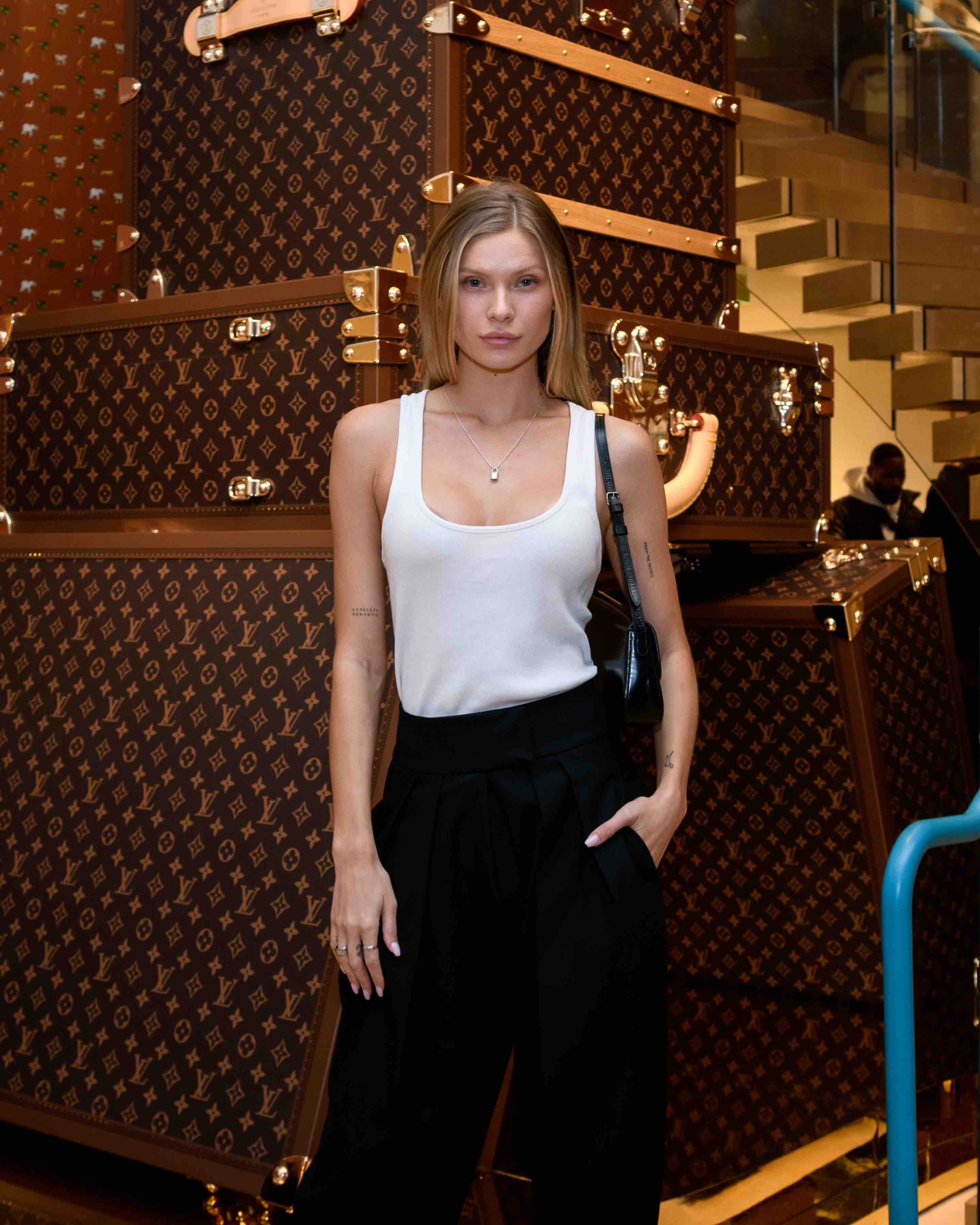

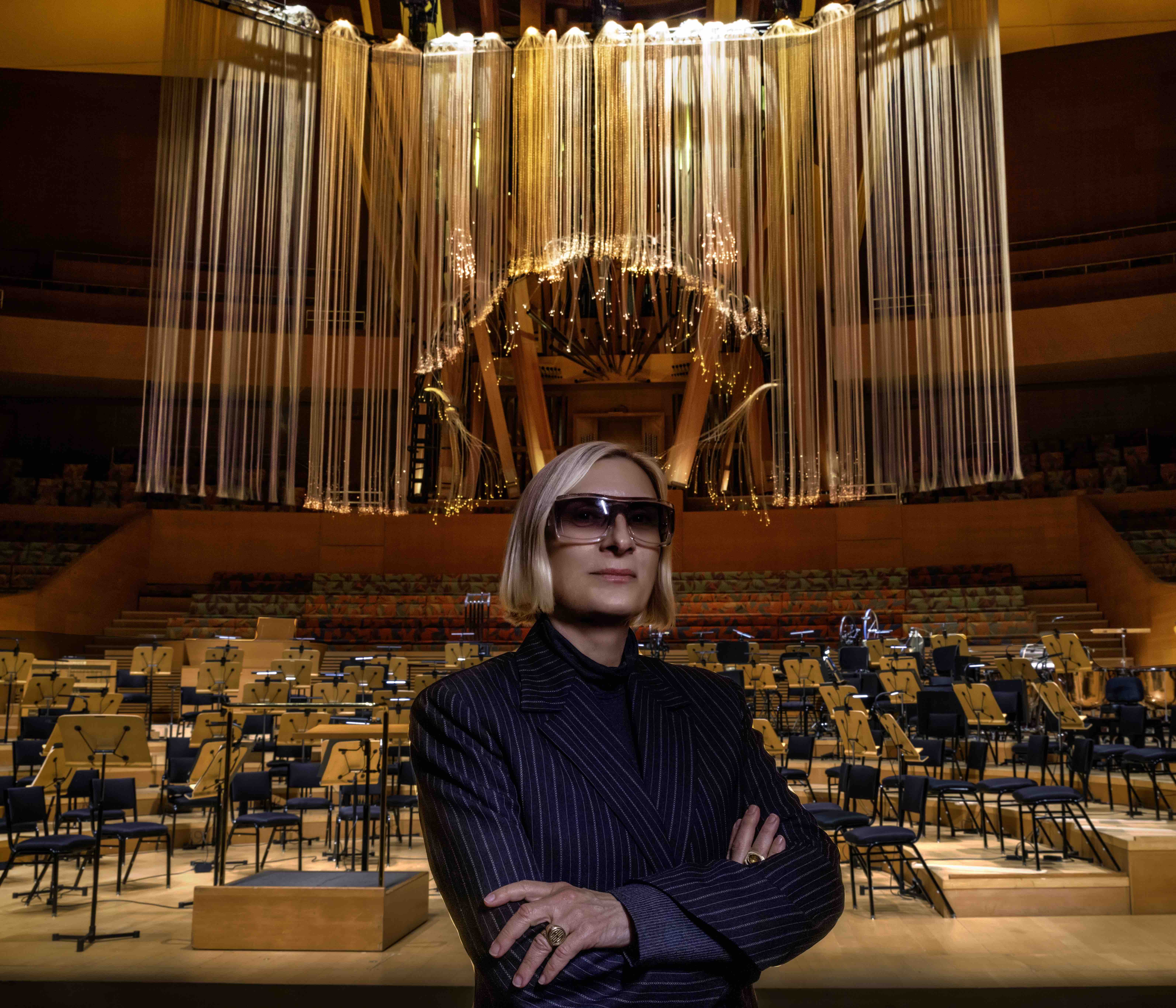
.jpeg)
